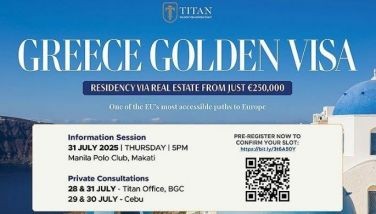The election were no Cebuano ran for the Senate
The 1961 general election held on November 14, 1961 was a political famine for the Cebuanos. No one from Cebu or from the Visayas and Mindanao won in the election for the Senate.
In that election, eight seats for the senate were in contest and all those who won were from Luzon. These were the winners in the election: (in order of highest votes) Raul Manglapus, Manuel Manahan, Lorenzo Sumulong, Francisco Soc Rodrigo, Gaudencio Antonino, Camilo Osias, Maria Kalaw Katigbak and Jose Roy.
A politician from Zamboanga of Cebuano descent, Mayor Cesar Climaco ran for the senate in that election but he merely placed 12th. The Climaco's are dominantly from Cebu in fact the first elected Governor of Cebu is a Climaco named Juan (the latter defeated Julio Llorente who was then appointed by the Americans but was unseated by Juan in an election), his nephew, Arsenio also became Governor. Arsenio was succeeded by Don Mariano Jesus Cuenco who ran for the Senate in 1941 and thereafter remained in national politics. Climaco ran under the Liberal Party.
The other Visayan who ran and lost in the election was Decoroso Rosales from Calbayog, Samar. Decoroso was the brother of Julio Rosales who became Bishop of Cebu, and elevated as Cardinal by Pope Paul VI in 1969.
Senator Rosales was mentored by our own Cebuano, the late president Don Sergio Suico Osmeña. Rosales was very familiar with Cebu, in fact during the World War II he served in the guerilla movement assigned in the Civil Affairs of the Cebu Area Command under Col. James Cushing.
Rosales who was an incumbent senator at the time of the election in 1961, won the election held on November 8, 1955. Rosales was with the Nacionalista Party. In 1971, Rosales was elected Delegate of the Constitutional Convention that drafted the 1973 Constitution. He again became part of those appointed by President Corazon Aquino of the Constitutional Commission that drafted our present Constitution (1987 Constitution drafted in 1986). Decoroso married Rosita Sepulveda of Cebuano descent.
It was not only in the Senate that the Cebuanos and Visayans lost, the Boholano President, Carlos Polistico Garcia, a Cebuano by affinity as he married Leonila Dimataga of Lapulapu City lost in his reelection for the presidency. It was Garcia who championed for the cityhood of Lapulapu, then called as Opon.
It was a victory for the Liberals as its candidate, Diosdado Macapagal, the incumbent Vice President won against President Carlos P. Garcia of the Nacionalista Party. In the Vice Presidency, which was a consolation, a Visayan won, his name was Emmanuel Pelaez of the Liberal Party. The candidate for the Nacionalista Party for the vice president which was Gil Puyat placed 3rd. Senator Sergio "Serging" Chiong Veloso Osmeña Jr. of the Liberal Party chose to ran as an independent placed 2nd to Pelaez.
Pelaez finished his preparatory law course of Associate in Arts at the University of Philippines Cebu Campus. Emmanuel finished his Bachelor of Laws in the University of Manila he was then admitted to the Bar on January 9, 1939. After serving his term in 1965 as Vice President, Pelaez ran in the then Lone District of Misamis Oriental. Emmanuel was the son of Gregorio Pelaez Sr. and Felipa Neri. He died on July 27, 2003.
Another incumbent Senator from Mindanao, Domocao Alonto also lost in the 1961 election. Senator Domocao Alonto of Lanao was with the Nacionalista Party under the leadership of Garcia. Domocao was the son of Senator Alauya Alonto who in 1912 became Sultan of Raman, Lanao. Senator Alauya was elected Senator 1934 until it was abolished in 1935. Then reelected in 1941 and served until 1947.
Senator Jose E. Romero of Bais, Oriental Negros also lost the election of 1951. Romero ran under the Nacionalista Party and placed 17th out of the 22 candidates. Jose was the son of Francisco Romero and Josefa Munoz. Senator Romero married Eliza Villanueva. Romero dominated the then 2nd District of Oriental Negros before World War II. Romero after finishing his law at the University of the Philippines passed the Bar Examinations and formally admitted as a lawyer on November 6, 1922.
- Latest
























